Electronic components: Analog Joystick
TypeScript Masterclass
AVAILABLE NOW with a 50% launch discount!
The analog joystick is one of those electronic components you have certainly used while playing video games:
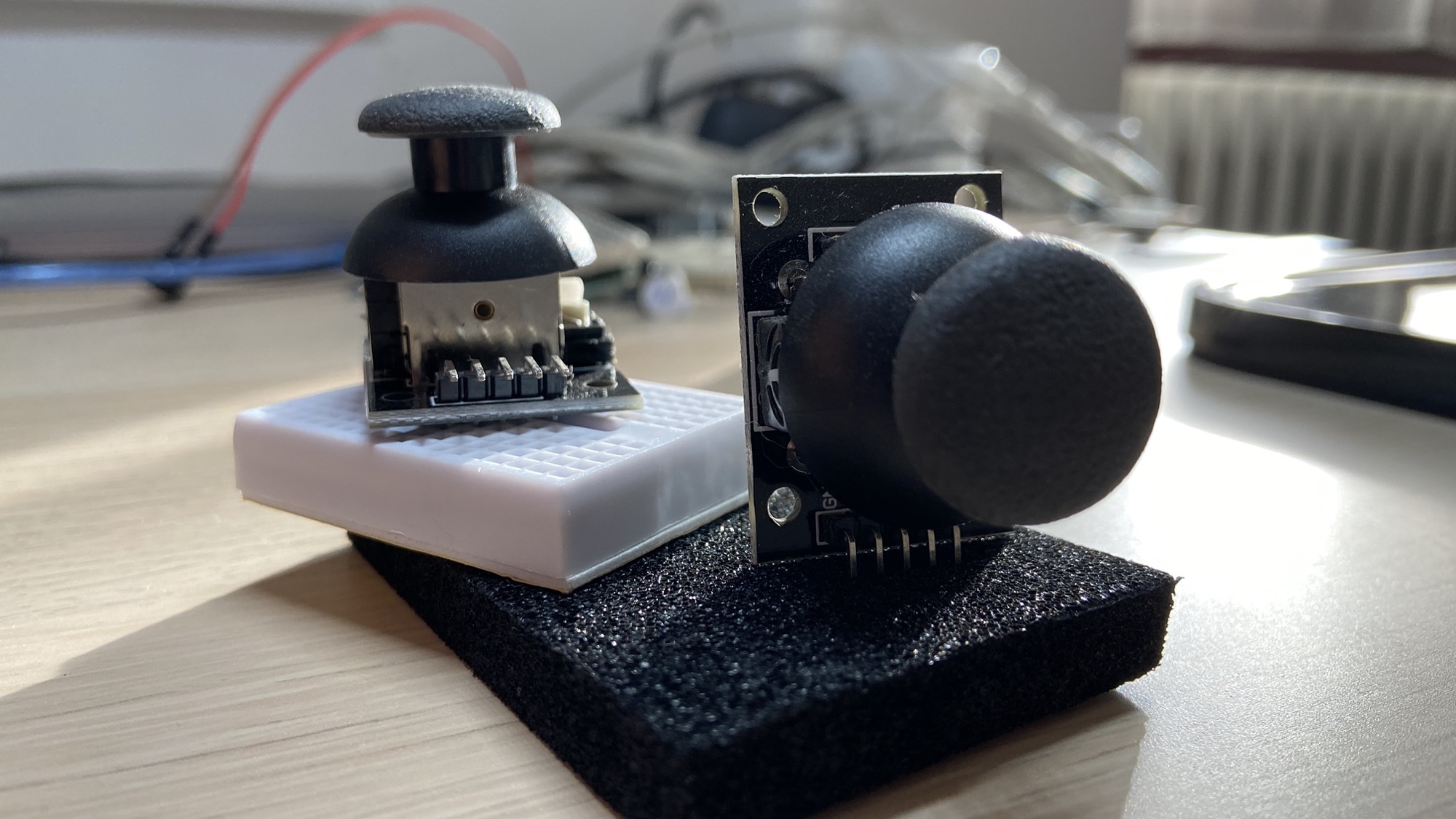
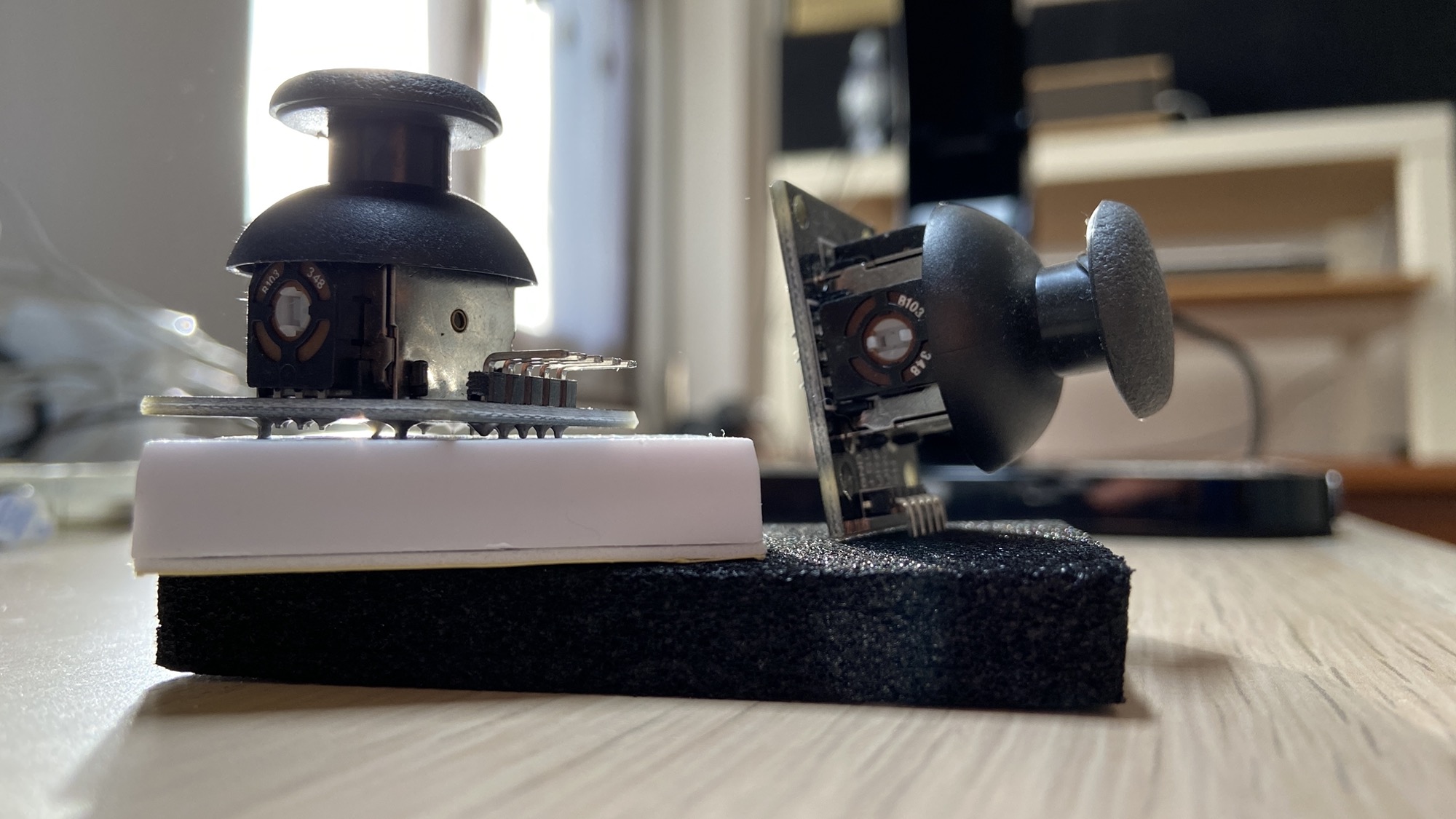
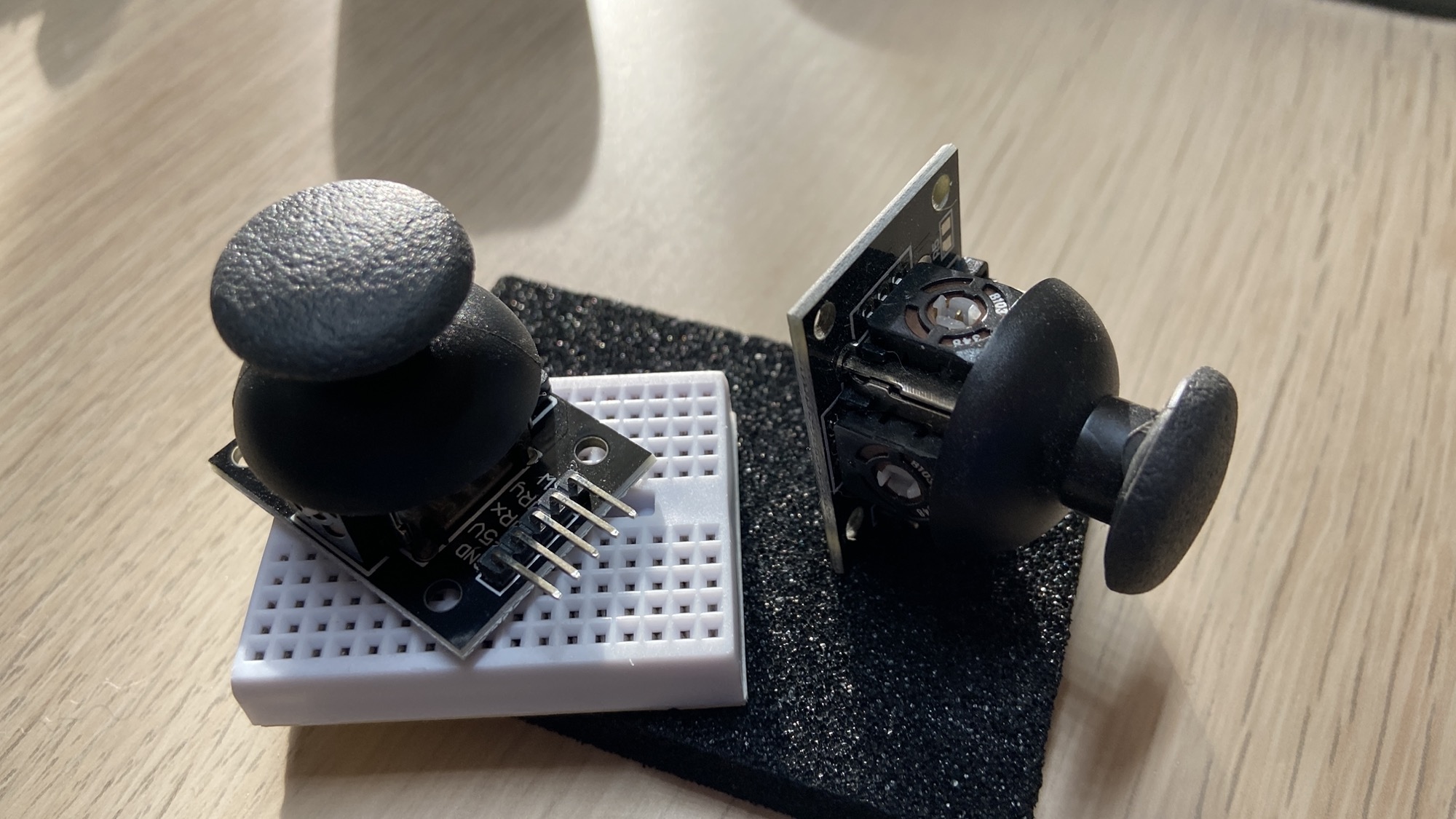

You can move the joystick around, and you can also click it from top to bottom:
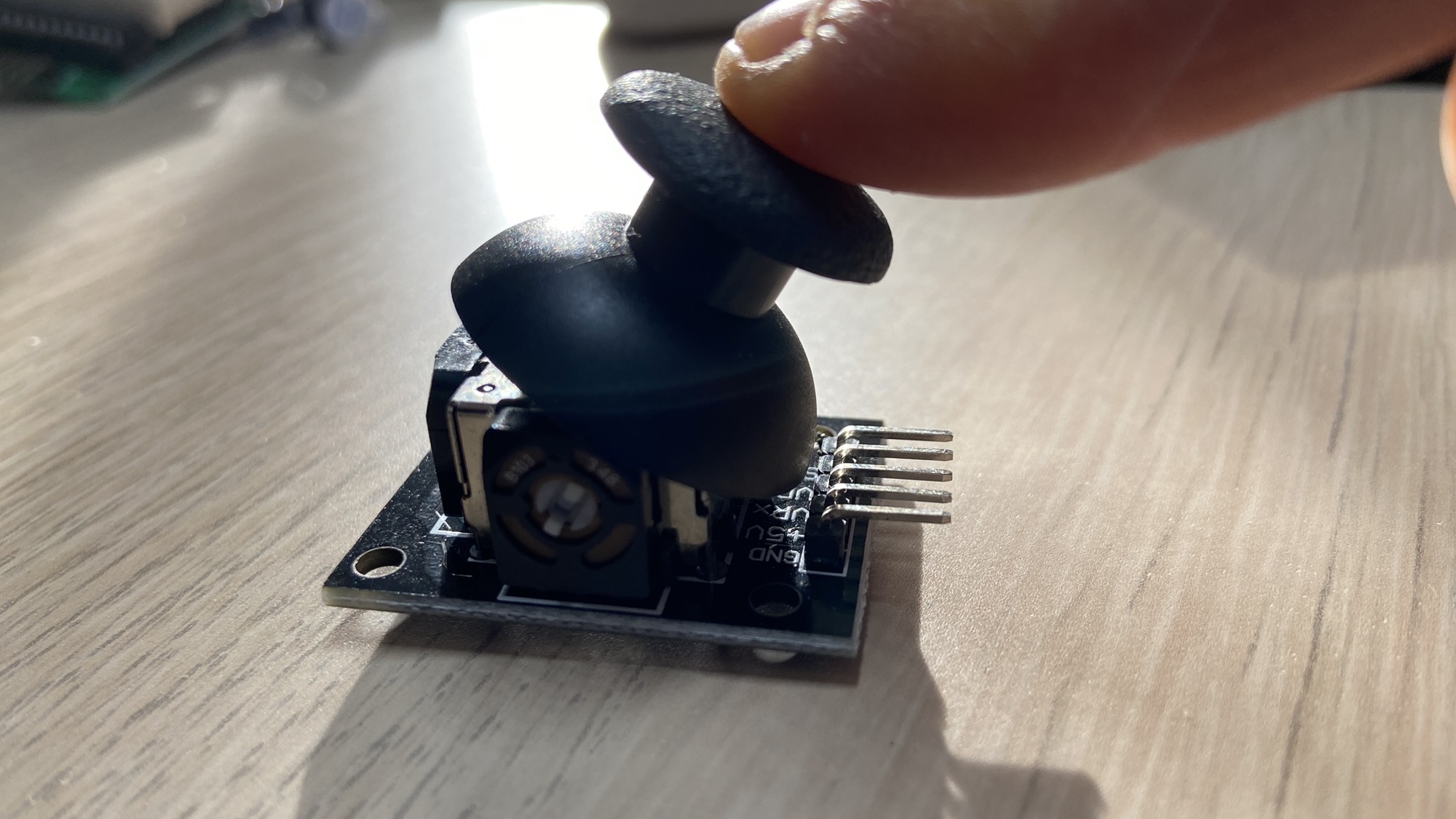
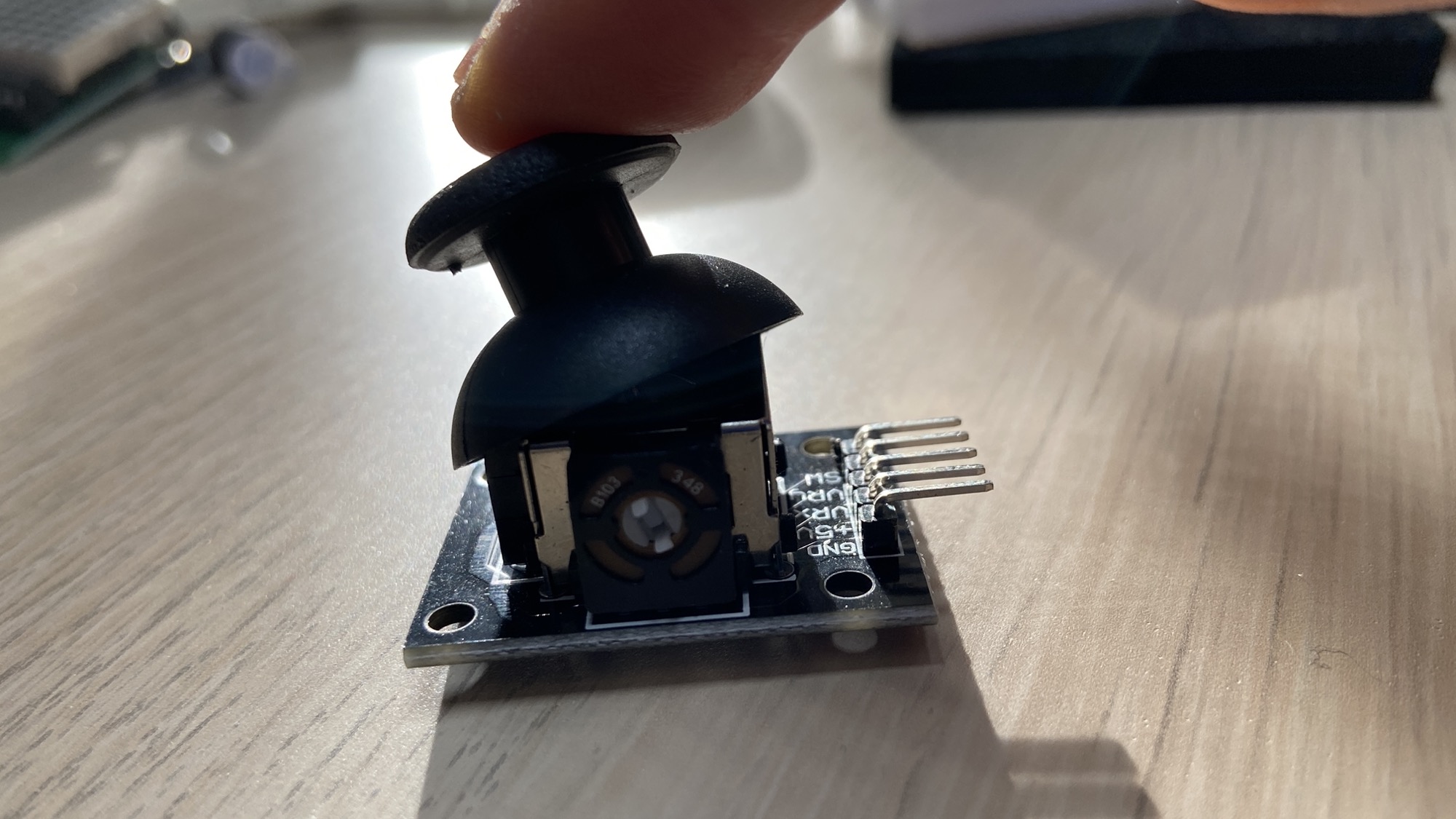
Any action performed will send the appropriate electronic signals to the circuit it’s connected to.
The 5 pins of the joystick are:
GND, the input LOW signal+5V, the input HIGH signal, can also be 3.3V when using a 3.3V based deviceVRx, the analog signal that represents the position of the joystick on thexaxisVRy, the analog signal that represents the position of the joystick on theyaxisSW, short for switch, is the digital valueLOWwhen pressed, otherwiseHIGH
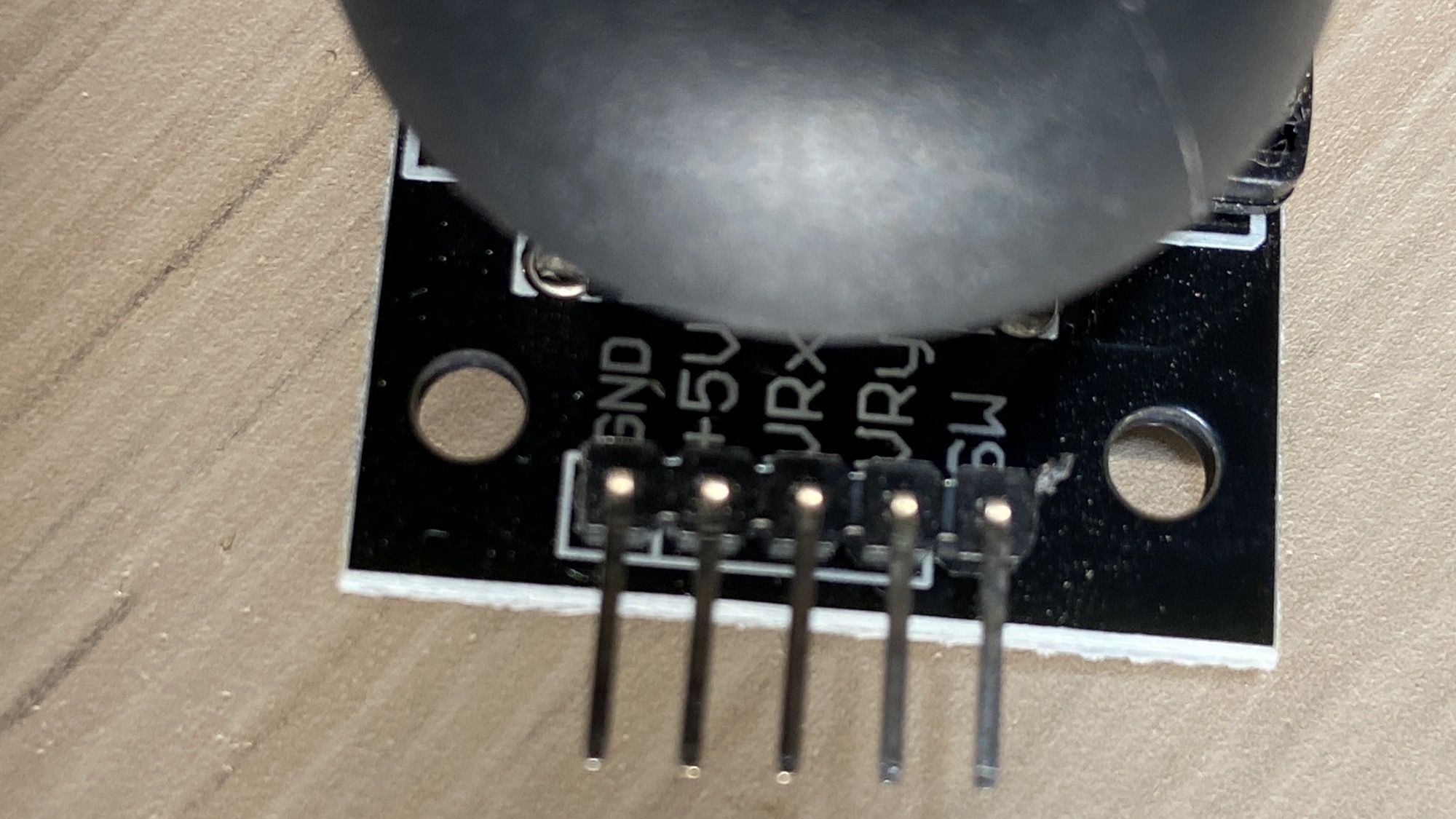
You connect VRx and VRy to an analog input pin to get their value.
Analog inputs range from 0 to 1023 since they use a 10 bits resolution.
When watching the joystick with the pins on the left, the X axis values assumes values from 0 (full left) to 1023 (full right) and 498 in the middle. The Y axis values assumes values from 0 (top) to 1023 (bottom) and 498 in the middle.
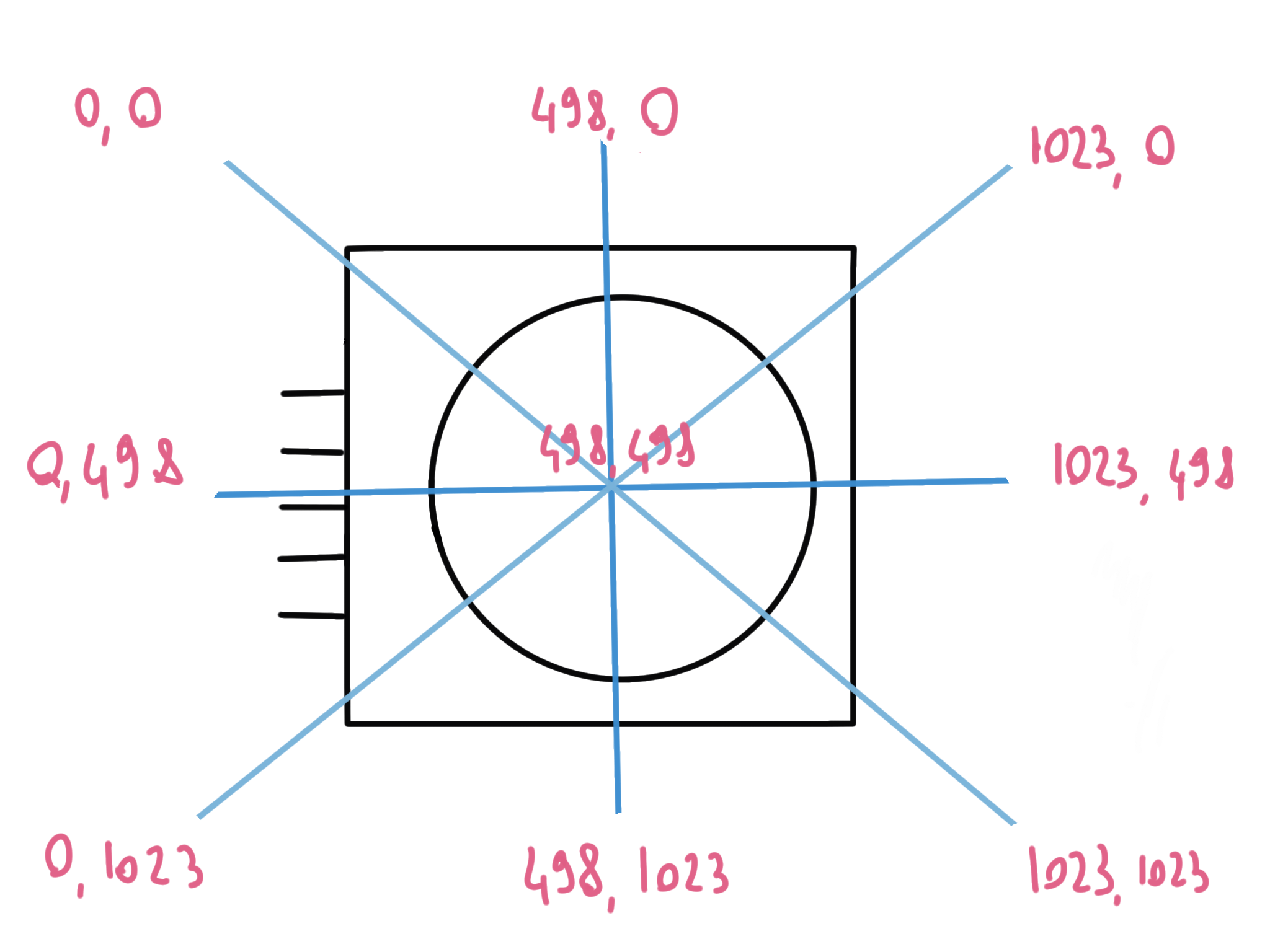
Assuming VRx is connected to A0 and VRy to A1:
int x = analogRead(A0);
int y = analogRead(A1);A simple program that prints the values is this:
void setup() {
Serial.begin(9600);
}
void loop() {
int x = analogRead(A0);
int y = analogRead(A1);
Serial.print("X = ");
Serial.print(x);
Serial.print("\tY = ");
Serial.println(y);
delay(100);
}You can also think of them as voltage values. Assuming a 5V positive voltage, you can multiply the value you get by 5.0, and then divide it by 1023 to get a 0 to 5 range:
x = analogRead(A0);
y = analogRead(A1);
float x_val = (x * 5.0) / 1023;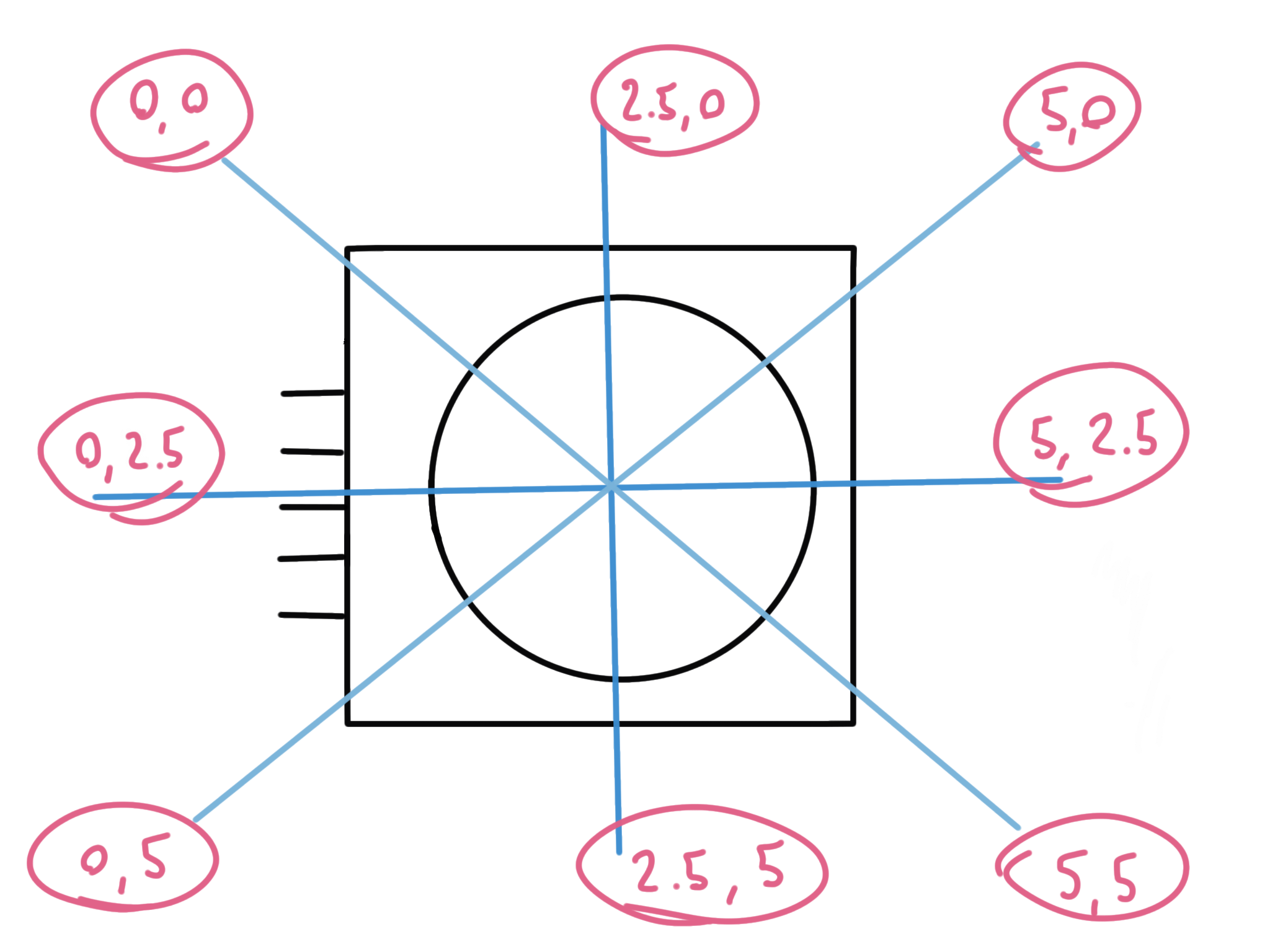
You can perform a similar calculation to get the values relative to a 3.3V Vcc.
I wrote 20 books to help you become a better developer:
- JavaScript Handbook
- TypeScript Handbook
- CSS Handbook
- Node.js Handbook
- Astro Handbook
- HTML Handbook
- Next.js Pages Router Handbook
- Alpine.js Handbook
- HTMX Handbook
- React Handbook
- SQL Handbook
- Git Cheat Sheet
- Laravel Handbook
- Express Handbook
- Swift Handbook
- Go Handbook
- PHP Handbook
- Python Handbook
- Linux/Mac CLI Commands Handbook
- C Handbook